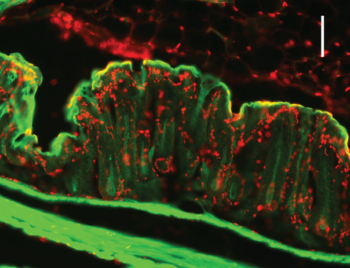 A molecule produced in the liver in response to low-carb “ketogenic” diets has a powerful effect in suppressing colorectal tumor growth and may be useful as a preventive and treatment of such cancers, according to a new study from researchers at the Perelman School of Medicine at the University of Pennsylvania.
A molecule produced in the liver in response to low-carb “ketogenic” diets has a powerful effect in suppressing colorectal tumor growth and may be useful as a preventive and treatment of such cancers, according to a new study from researchers at the Perelman School of Medicine at the University of Pennsylvania.
In the study, published in Nature, researchers initially found that mice on low-carb, high-fat ketogenic diets have a striking resistance to colorectal tumor development and growth. The scientists then traced this effect to beta-hydroxybutyrate (BHB), a small organic molecule produced in the liver in response to keto diets or starvation.
Click HERE to read more.


